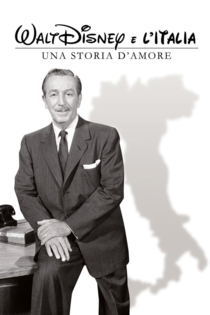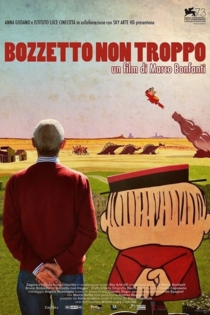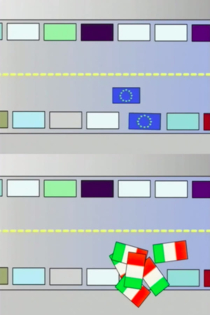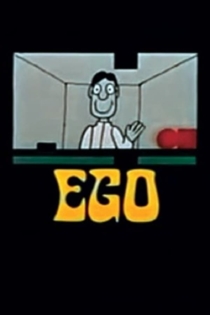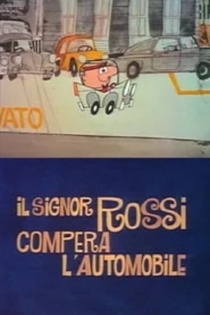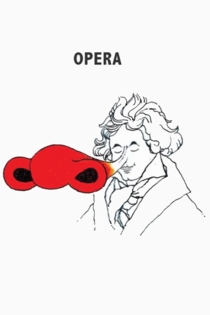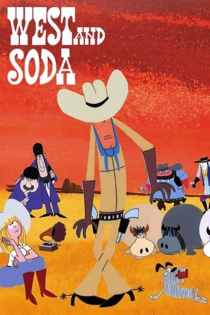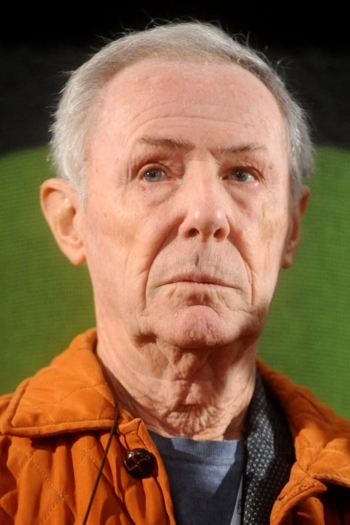
Bruno Bozzetto
1938 (87 лет)Mr. Rossi Looks for Happiness
Bruno Bozzetto
Gianfranco Mauri, Giuseppe Rinaldi
Where? Far from home,from work and his boss, far from city traffic and his alarm clock, far from the monotony of his life... The farthest away possible. Travelling against time, visiting places of other centuries. How? Thanks to a magic whistle given him by "Fairy Sicura" the most nutty, thoughtless, happy fairy still to be seen around. A golden whistle which can catapult him back into prehistory, or in ancient Rome, in Medieval time, on a desert island, in Fairy tale land, in ancient Egypt, in the far West or in the future.With whom? He travels with Gastone, his boss'dog, tiny,naive and a little bit spoiled : after many adventures he will realize how much more valuable a friend is rather than a cream pie. Will he find it? Yes, but not in the past, not in other centuries, full of incredible and miserable adventures for him. Happiness was much closer,at hand's reach. He only had to think about it... Isnt that right, Mr Rossi?
Mr. Rossi Looks for Happiness
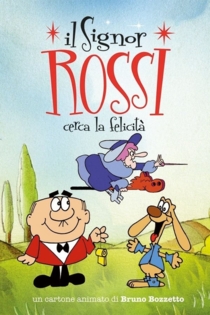
Le vacanze del signor Rossi
Bruno Bozzetto
Gianfranco Mauri, Giuseppe Rinaldi
A story about Mr. Rossi and his dog who go on vacation and all the adventures they have, from leading an animal revolt to climbing the Andes, or heading to the beach and being serenaded by strange fish.
Mr. Rossi's Vacation
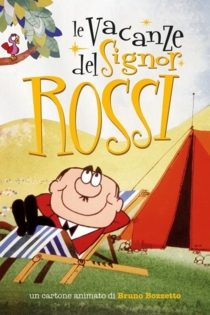
Allegro non troppo
Bruno Bozzetto
Maurizio Nichetti, Maurizio Micheli
The film is a parody of Disney's Fantasia, though possibly more of a challenge to Fantasia than parody status would imply. In the context of this film, "Allegro non Troppo" means Not So Fast!, an interjection meaning "slow down" or "think before you act" and refers to the film's pessimistic view of Western progress (as opposed to the optimism of Disney's original).
Allegro Non Troppo
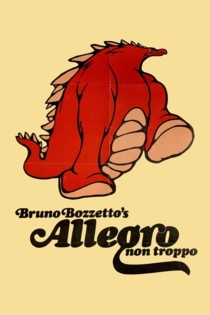
Mr. Rossi's Dreams
Bruno Bozzetto
Gianfranco Mauri, Giuseppe Rinaldi
At the end of another week of work Rossi returns home with the intention of enjoying a quiet and peaceful weekend. He lives with Gastone, his dog-friend,who, after a week of loneliness, can't wait to go out, for instance to the movies, and have fun. Gastone as a matter of fact is a passionate fan of movies, television and heroes' books. He always compares Rossi with them and nags with a petulant : "Rossi, Rossi, if you only were...braver, stronger, richer...". His continuous complaints push Rossi to identify himself with those heroes; throughout the film we will meet Rossi-Tarzan, Rossi-Astronaut, Rossi-Sherlock Holmes, Rossi-Zorro, Rossi-Hollywood actor, Rossi-scientist, Rossi-Lancelot, Rossi-Aladdin. Eight fantastic adventures in which Rossi, along with faithful Gastone, relishes the joy of being a hero.
Mr. Rossi's Dreams
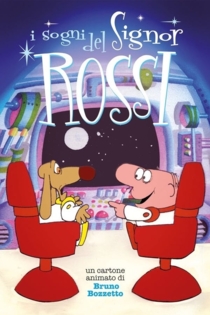
Rapsodeus
Bruno Bozzetto
Is there a meaning to the thousands of wars fought by mankind? - Esiste un senso nelle migliaia di guerre combattute dall'umanità? Played over the second Hungarian Rhapsody by Franz Liszt, simulated with a virtual orchestra by Roberto Frattini, "Rapsodeus" shows the nonsense that lays behind every war fought by mankind. Directed by Bruno Bozzetto. Animated by Studio Alienatio.
Rapsodeus

The SuperVips
Shinichiro Watanabe, Bruno Bozzetto
Oreste Lionello, Fiorella Betti
A satire of modern society or perhaps just a funny tale for children, depending on your age, mood or liking. Recounting the adventures of the last in a line of Supermen, the film pokes fun at the processes that lie behind advertising, politics and our consumer society.
The SuperVips
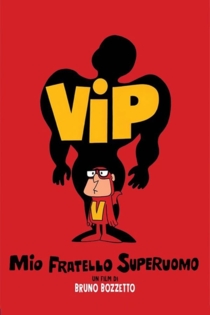
Cavallette
Bruno Bozzetto
An animated short by Bruno Bozzetto which condenses the whole of human civilization into 9 minutes, focusing primarily on the human race's predilection for warfare and the vanity of war. It was an Oscar Nominee for Best Animated Short in 1991. Each piece of history is presented as a simple vignette, usually depicting a few simply-drawn characters arguing and making war, over and over again. Generally, a single figure is meant to stand in for an entire group (i.e., a single Caesar-like caricature for the entire line of Roman Emperors). There is very little spoken dialogue; instead, most of the cartoon is accompanied by a bouncy piano-driven score, which frequently changes style to suit the particular historical era. However, the score is all based around a single simple theme, to which it frequently returns in between vignettes.
Grasshoppers
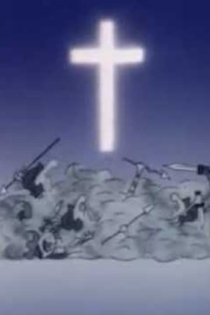
Walt Disney e l'Italia - Una storia d'amore
Marco Spagnoli
Serena Autieri, Carl Barks
No other country in the world has the same kind of affection and admiration toward Walt Disney and his art and characters as Italy. His movies are legendary and his stories belong to the collective imagination of generations of Italians who grew up with his world of dreams and hopes. This documentary explores this love story.
Walt Disney e l'Italia - Una storia d'amore
